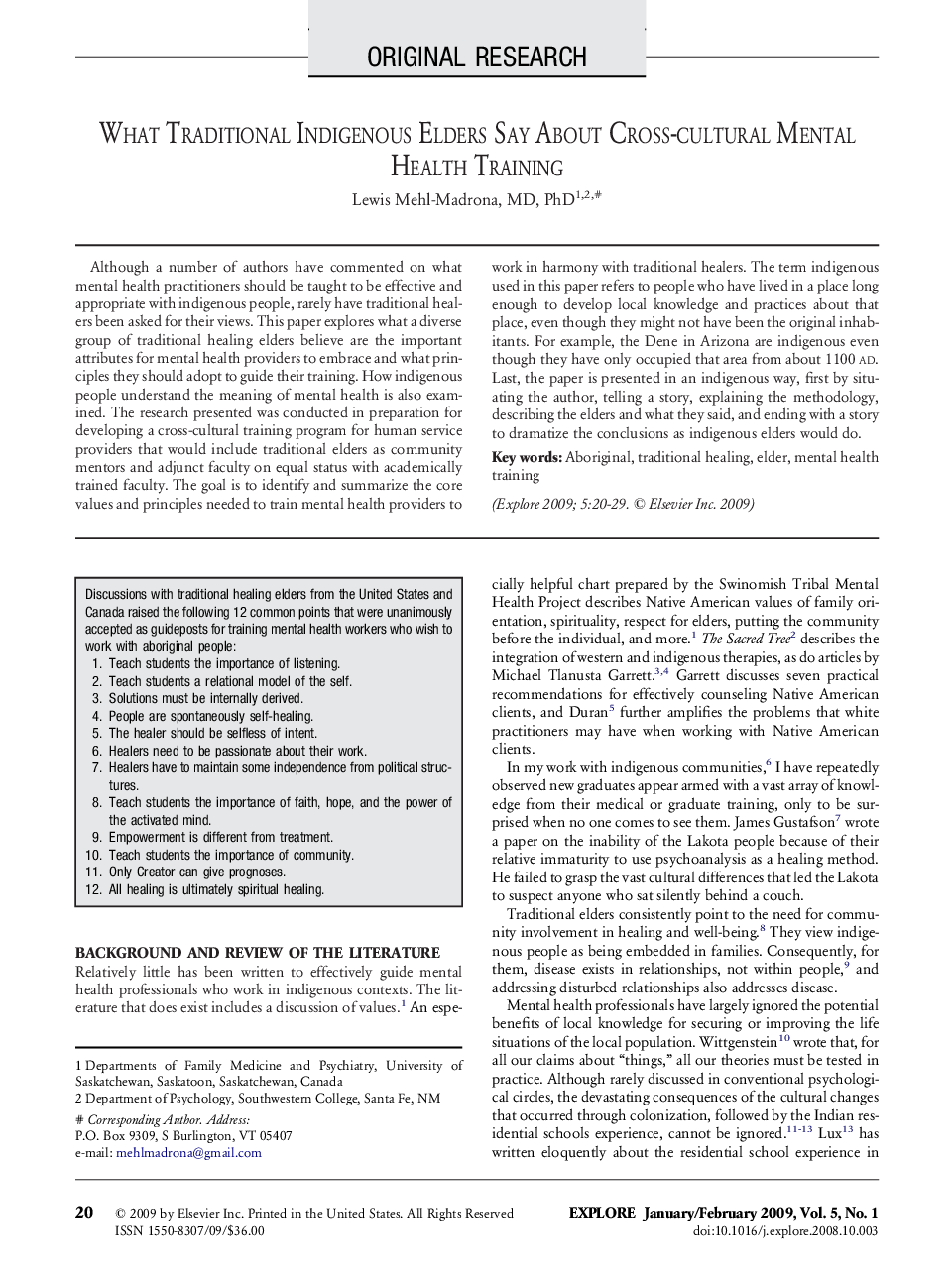| کد مقاله | کد نشریه | سال انتشار | مقاله انگلیسی | نسخه تمام متن |
|---|---|---|---|---|
| 2692410 | 1143432 | 2009 | 10 صفحه PDF | دانلود رایگان |

Although a number of authors have commented on what mental health practitioners should be taught to be effective and appropriate with indigenous people, rarely have traditional healers been asked for their views. This paper explores what a diverse group of traditional healing elders believe are the important attributes for mental health providers to embrace and what principles they should adopt to guide their training. How indigenous people understand the meaning of mental health is also examined. The research presented was conducted in preparation for developing a cross-cultural training program for human service providers that would include traditional elders as community mentors and adjunct faculty on equal status with academically trained faculty. The goal is to identify and summarize the core values and principles needed to train mental health providers to work in harmony with traditional healers. The term indigenous used in this paper refers to people who have lived in a place long enough to develop local knowledge and practices about that place, even though they might not have been the original inhabitants. For example, the Dene in Arizona are indigenous even though they have only occupied that area from about 1100 ad. Last, the paper is presented in an indigenous way, first by situating the author, telling a story, explaining the methodology, describing the elders and what they said, and ending with a story to dramatize the conclusions as indigenous elders would do.
Journal: EXPLORE: The Journal of Science and Healing - Volume 5, Issue 1, January 2009, Pages 20–29